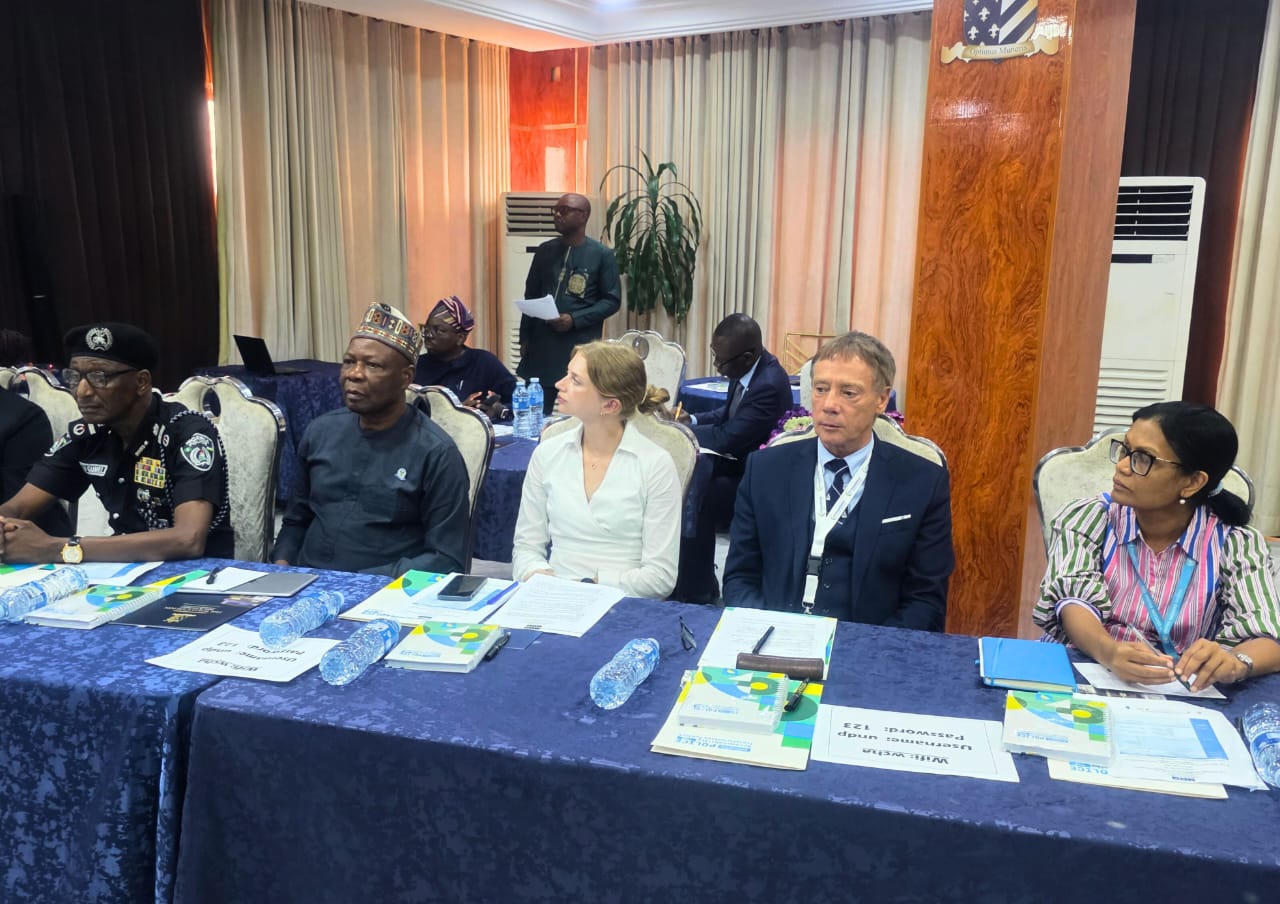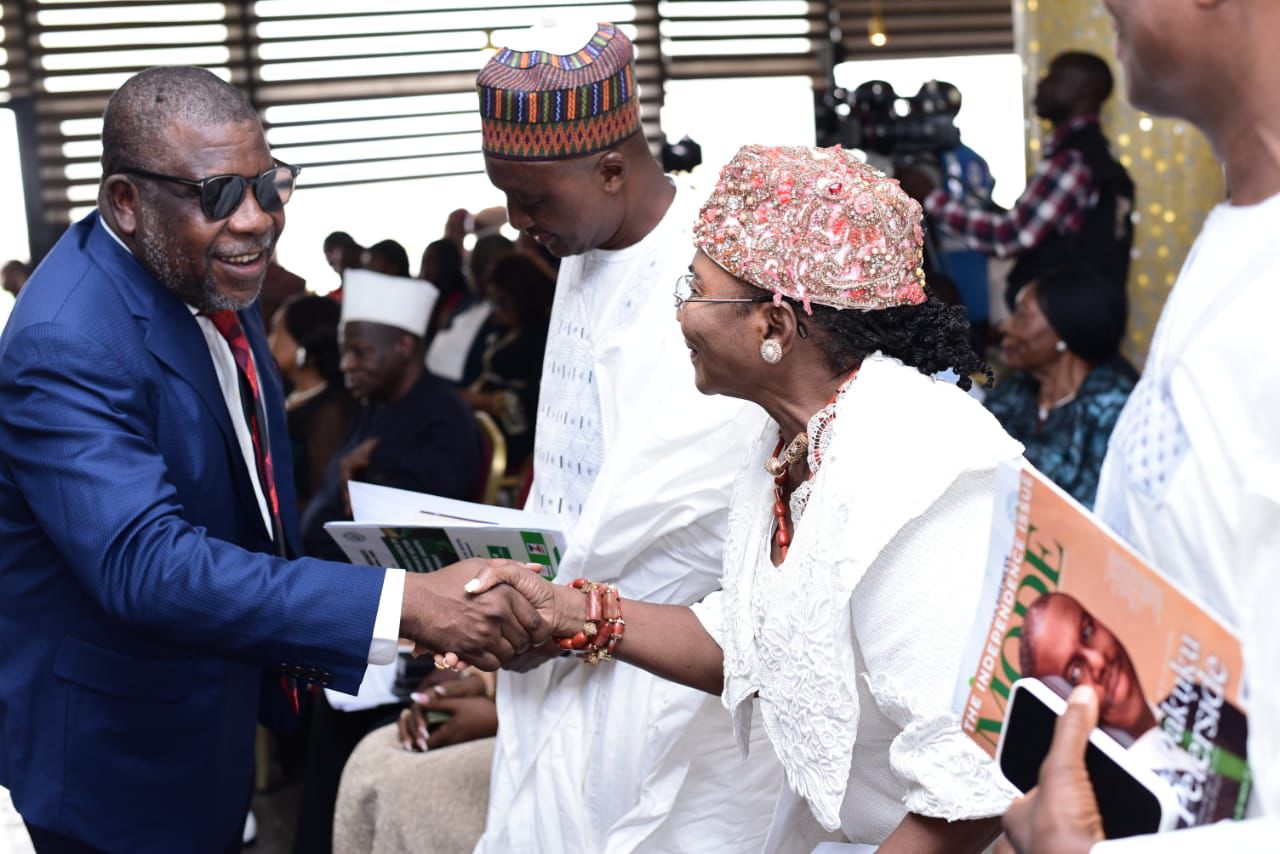News
Building a Police Force That Works for All Nigerians, Our Priority — PRS

Joel Ajayi
In its commitment to national development and public trust, the Police Reform Secretariat (PRS) is championing efforts to build a modern, inclusive, and accountable police system that truly serves the needs of all Nigerians.
Through stakeholder engagement, institutional reform, and community-focused strategies, the PRS aims to reposition the Nigeria Police Force as a professional and people-centred institution, capable of protecting rights, upholding justice, and fostering nationwide security.
At the heart of this initiative is the Multi-Stakeholder Consultative Forum on National Police Reform, held on Tuesday in Abuja, where key stakeholders from across the country gathered to deliberate on sustainable reforms that can reposition the Nigeria Police Force for national development and improved public trust.
The Police Service Reform (PSR) initiative, spearheaded by the PRS, is a vital and timely effort designed to restructure the Nigeria Police Force into a more professional, accountable, and people-oriented institution. These reforms are anchored on three critical pillars: Professionalism, Accountabilityand People-Oriented Policing.
Also, the forum marks a significant step in the ongoing national dialogue to create a reformed police structure that not only enforces the law but also earns the trust, confidence, and cooperation of the communities it serves.
Speaking at the event, Inspector General of Police, Kayode Egbetokun, who was represented by AIG M. Gumel, reiterated the importance of inclusive reform. He described the forum as an essential platform to drive meaningful change, saying: “Today’s gathering is not just another meeting. It is a collective call to action. Across Nigeria, communities are demanding a policy and policing system that is inclusive, accountable, professional, and people-centred. We are being asked to imagine — and help build a system that is not merely an institution on paper, but a trusted partner in safeguarding rights and fostering safe, equitable communities.”
He stressed that true reform must be bottom-up, shaped by the diverse voices of Nigerians — from security agencies to civil society, from traditional rulers to youth groups, and from policymakers to everyday citizens.
“As we begin our deliberations today,” he said, “let us be guided by three foundational principles: Inclusivity – Every Nigerian, especially the marginalised, must see themselves in the system that governs them.
Accountability – Policy is a public trust, and transparency must define our actions, Innovation – We must embrace forward-thinking, data-driven approaches that match today’s security realities.”
On behalf of the police and the organising committee, the IGP’s representative declared the forum open, urging all participants to engage in honest, respectful, and action-oriented dialogue.
Speaking during the forum, the Coordinator of the PRS Prof. Olu Ogunsakin, emphasized that the gathering was convened to harness diverse perspectives and collective wisdom to drive meaningful and inclusive reforms.
“This platform allows for open dialogue among stakeholders to shape a reform agenda that reflects the needs of the people and the realities on the ground. We aim to develop a police system that works for all Nigerians.”
In his remarks, the Chairman of the Police Service Commission (PSC), DIG Hashimu Argungu (retd), expressed his gratitude to the United Nations Development Programme (UNDP), the German Government, and other development partners for their unwavering support in shaping a transformative police reform agenda.
“We appreciate our partners for their technical and financial support, and for championing the reform policy review. This effort is about building a police service that is truly in service of the Nigerian people,” DIG Argungu stated.
Delivering a goodwill message, Mr. Christoph Sehotte, representative of the German Embassy, reaffirmed Germany’s commitment to supporting Nigeria’s police reform agenda.
“Police reform is a cornerstone of strong democracy, the rule of law, and public safety. Germany is proud to support this critical process — not only through funding, but through practical and inclusive interventions that deliver real impact,” Sehotte stated.
He highlighted Germany’s efforts in facilitating trainings and workshops to build police capacity, foster gender equality, and promote community policing approaches that bring the police closer to the people and strengthen public trust.
“We are proud of our successful collaboration with implementing partners such as the UNDP, the GS Foundation, and the CLEEN Foundation. Together, we’ve translated our support into concrete actions and visible results on the ground,” he added.
Mr. Sehotte also emphasised the strategic role of the Police Reform Secretariat, describing it as both a coordination hub and a potential think-tank for future policy development.
“Strengthening the Secretariat is essential for the long-term success of police reform in Nigeria. This forum is an important milestone a moment to reflect on progress and shape the next steps toward a modern, accountable, and people-centred police service.”
He concluded by affirming Germany’s long-term commitment to the process and urged all stakeholders — civil society, government, international partners, and communities — to work together to build a police system that serves the people, supports justice, and promotes peace and stability in Nigeria.
News
AUDA-NEPAD CEO Highlights Collaboration as Catalyst for Africa’s Economic Competitiveness

Joel Ajayi
The Chief Executive Officer and National Coordinator of AUDA-NEPAD Nigeria, Hon. Jabiru Salisu Abdullahi, has called for stronger public-private partnerships to boost Africa’s global competitiveness.
Speaking at the High-Level Business Forum 2025 organised by the NEPAD Business Group Nigeria in Lagos, Hon. Abdullahi said Africa’s transformation will be driven by enterprise, not aid.
He urged governments to create enabling environments that foster innovation, industrial growth, and sustainable development.
He reaffirmed AUDA-NEPAD Nigeria’s commitment to working with private sector actors and development partners to deliver key initiatives in agriculture, ICT, manufacturing, and renewable energy under the AU Agenda 2063 framework.
The event brought together top business and policy leaders, including representatives from the African Business Roundtable, the Bank of Industry, the Africa Finance Corporation, and the Manufacturers Association of Nigeria, among others.
-

 Featured6 years ago
Featured6 years agoLampard Names New Chelsea Manager
-

 Featured6 years ago
Featured6 years agoFG To Extends Lockdown In FCT, Lagos Ogun states For 7days
-

 Featured6 years ago
Featured6 years agoChildren Custody: Court Adjourns Mike Ezuruonye, Wife’s Case To April 7
-

 Featured6 years ago
Featured6 years agoNYSC Dismisses Report Of DG’s Plan To Islamize Benue Orientation Camp
-

 Featured4 years ago
Featured4 years agoTransfer Saga: How Mikel Obi Refused to compensate me After I Linked Him Worth $4m Deal In Kuwait SC – Okafor
-
Sports3 years ago
TINUBU LAMBAST DELE MOMODU
-

 News10 months ago
News10 months agoZulu to Super Eagles B team, President Tinubu is happy with you
-
Featured6 years ago
Board urges FG to establish one-stop rehabilitation centres in 6 geopolitical zones
